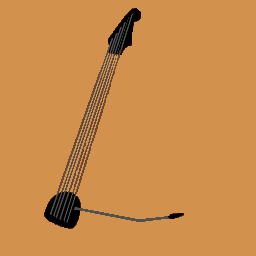Hi, 3d printing a nut guy again. Finally have all the materials and I think enough skill to model this thing on my own.
Exactly what tolerances should I have in the channels of the nut for the strings? Like, for example my low B string is a .59. How large should I make that channel? 1.50mm? A little more room perhaps?
Thanks for any responses!
I can’t speak to 3d printing them necessarily, but when I’ve cut slots I’ve always been told to use as close to the correct size file as possible. However, you need a little bit of wiggle room because strings aren’t entirely uniform. So a 1.50mm slot for a .59 string would likely be just right with a 0.0014mm tolerance.
Assuming you get more than one shot at printing, I’d slot them one gauge size larger than what you plan on putting on it. For example I use Regular Slinky on mine so if I didn’t have a set of files I’d print it for Power Slinky both for the sake of tolerance and in case I ever want to change string gauges.
Good luck, I hope this works out for you!
Assuming you get more than one shot at printing
Yep, have an entire kilogram roll of carbon fiber PLA so I can get as many tries at this as I need.
I’d slot them one gauge size larger than what you plan on putting on it.
I have a set of D’Addario EXL110-7 which is 10-59, so I’d want to go to 11-60 then, correct?
That’s where I’d start for the first one. You may get lucky, or you may find out that it’s too big.
I’ll be super interested to know how it works out!
Yeah, I’ll make sure to post everything here seeing as this corner of the fediverse could use some more content. Even if it’s just me, lol.
The cuts in the nut really serve two purposes:
-
Supposing there’s no 0-fret, they let you set the action height at the headstock end of the fretboard.
-
Set string spacing at the headstock side.
So, in my opinion, try to keep the tolerances close but with a bit of room for movement. You want to be sure that the strings can slide when tuning and fretting notes without getting caught, which can mess with tuning. Especially with a floating bridge.
Especially with a floating bridge.
Luckily it’s a string through hard bridge. Ibanez ax7221 (Japanese built version.) I am going to be printing it standing up so that the layers of the print are parallel to the strings to keep it from getting hung up on the winds.
-


